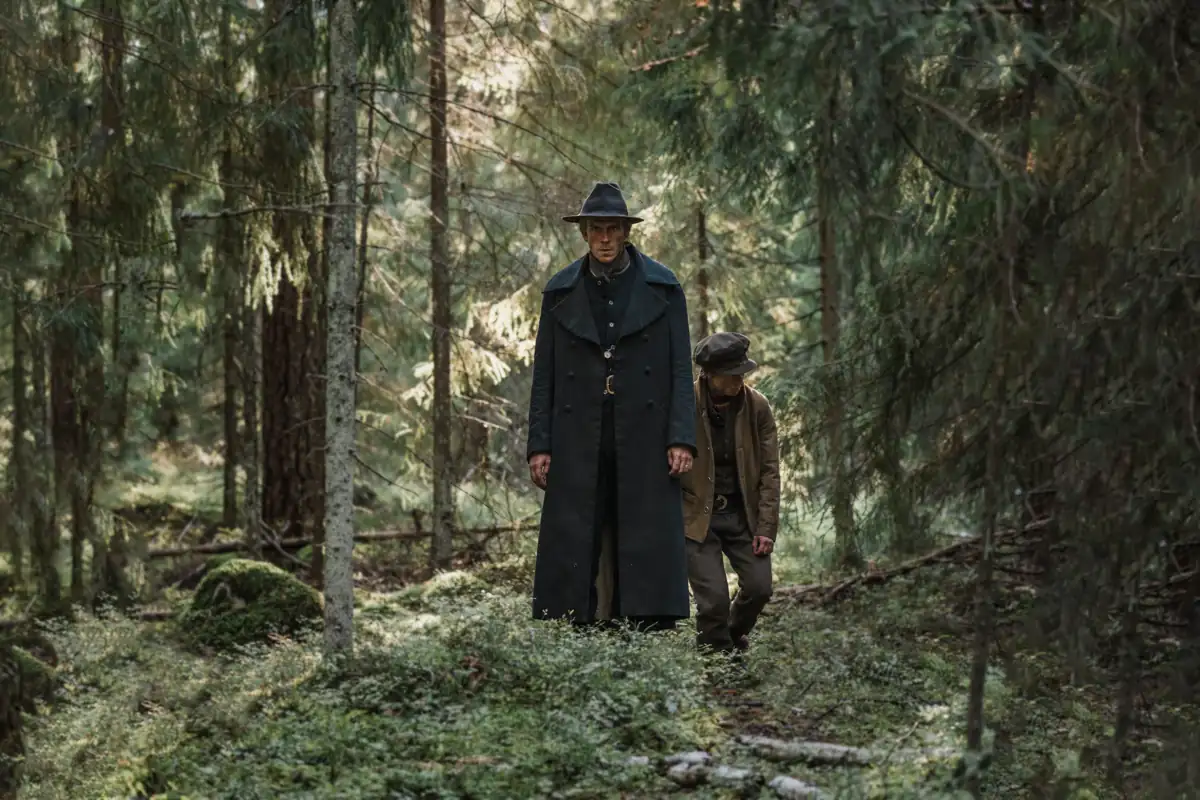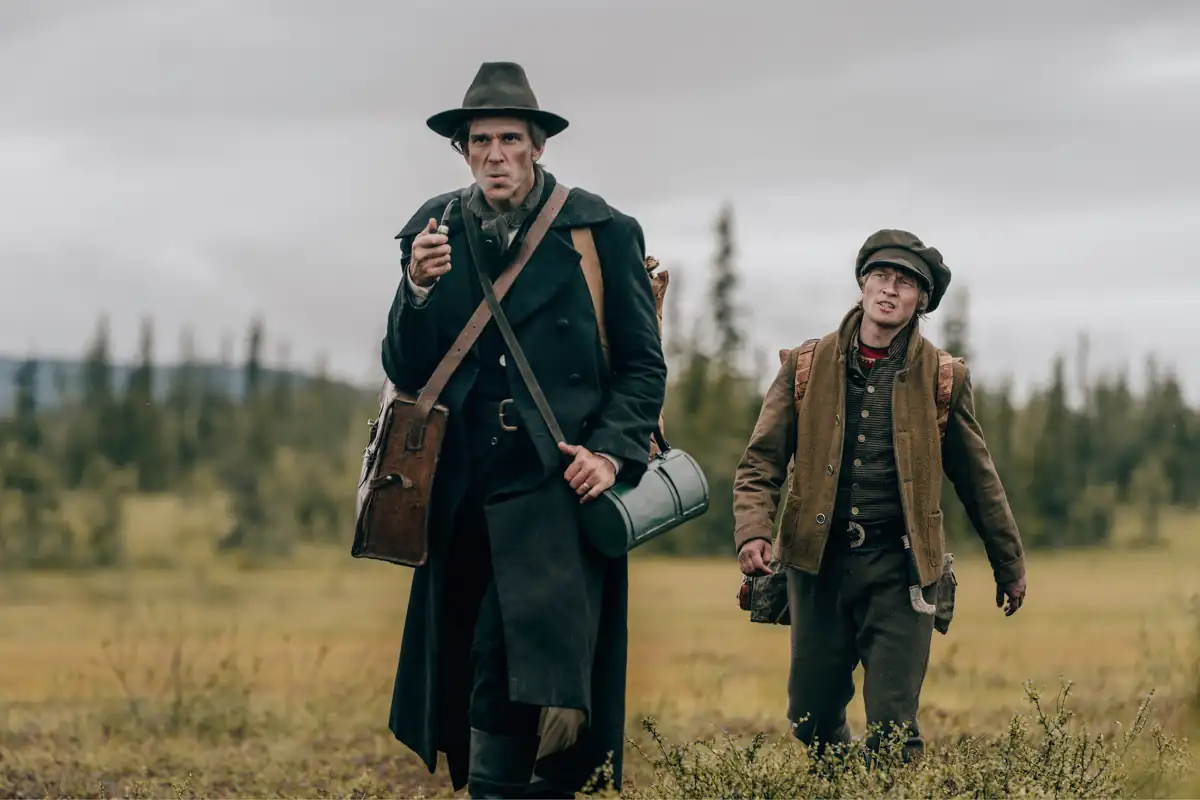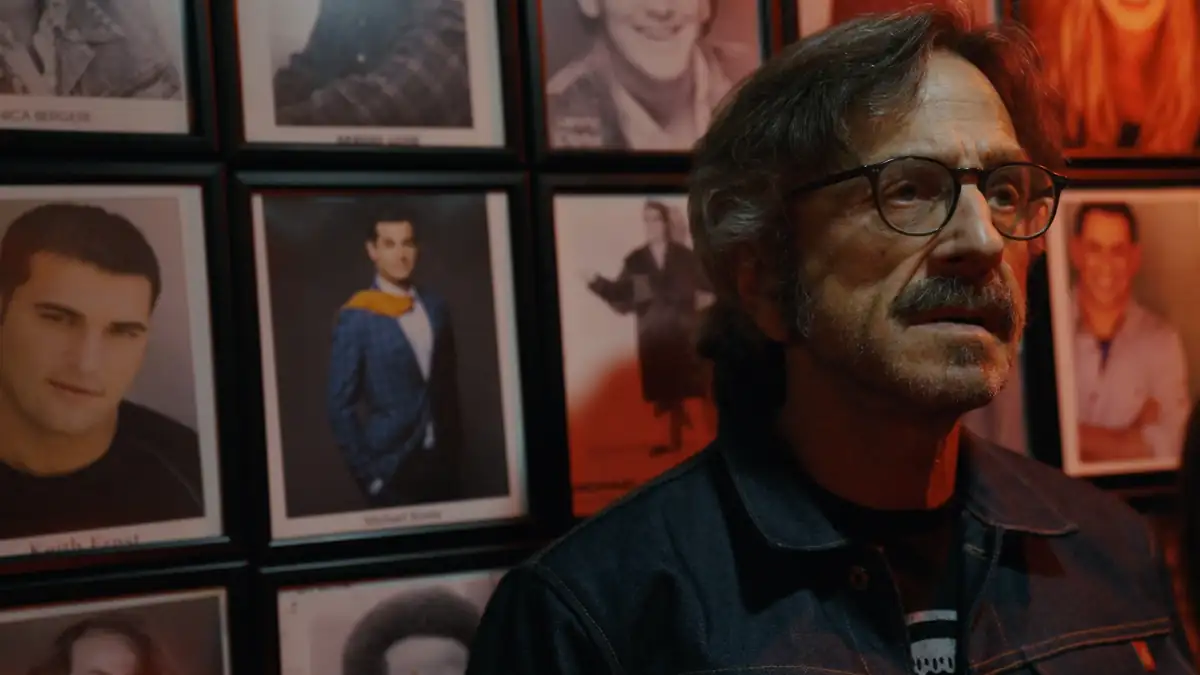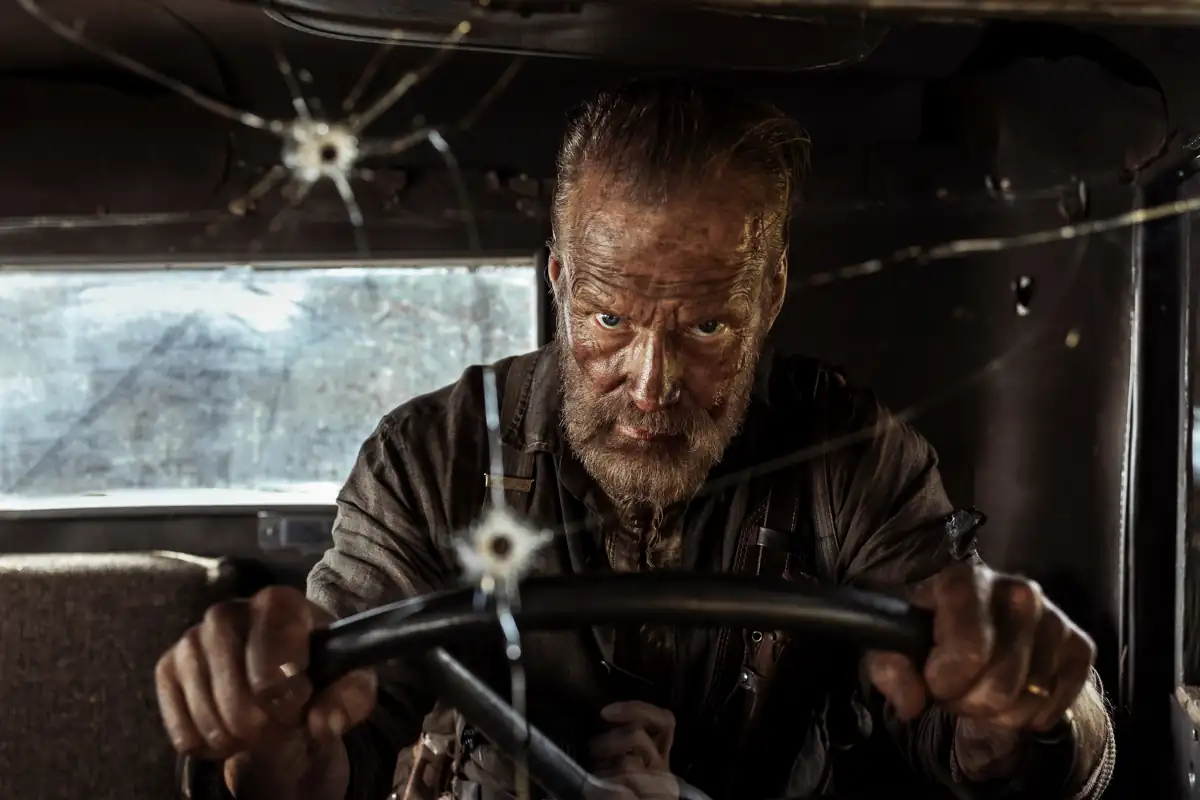★★★★★ | We were here once
(ONCE UPON A TIME IN VENEZUELA is available at DocPoint 2020.)
Once Upon A Time In Venezuela, directed by Anabel Rodríguez Ríos, feels like a fairy tale. A modern one without a happy ending, but larger than life nonetheless.
It has all the elements of a classic battle between good and evil. The setting is a town that floats on water. The night sky thunders silently in the vast darkness. It would be a lovely story for another time. But these first impressions are superficial. Beyond them is a heartbreaking elegy for a doomed world. One that is no longer there; swept away by the waters. At the epicenter of the story are two powerful women. Each cast on opposing sides of the political spectrum.
One of these women is Natalie, a school teacher for the remaining families. She’s also a fervent critic of Chavez and Maduro, who now sit in power. The other is Tamara, a devout follower of Chavezian politics, despite her better judgment. She considers herself the de facto leader of their sinking town. The location is Congo Mirador, a once-thriving settlement of 300 families, now down to less than 70. It’s also the location where Venezuela drills its oil, permanently damaging the ecosystem in the process.
Their conflict frames this stirring, intimate documentary. While other figures come and go, Rios fixes her sights on the quiet battle between the two. What’s impressive is her refusal to cast the film in a traditionalist light of good and evil. After all, she’s spent seven years with her subjects. There is perspective here into the heart of desperation that no fiction could touch.
Tamara’s hustle is a thing to behold. I can’t help but feel there are reasons beyond politics to her stay in Congo Mirador. She’s a big fish in an increasingly small pond. Her meager influence affords her invites to places far beyond the town. When we meet her, she’s clearly wealthier than others. Her house has solid ground under it. You’d think she could escape at any minute. Yet Tamara stays, eagerly advocating for her community. No matter how wrongheaded, she’s working for her people.
It’s when she attacks Natalie, the only teacher in town and her political counterpoint, that our empathy wanes. While both face an impossible situation with a dream of salvaging their home, it’s Tamara who is willing to kick others off the lifeboat for political and personal gain.
Beyond their struggle is a dispassionate system descending on their home. The slow usurpation of natural beauty is an exercise in contained rage. Arriving from Caracas, they blindly ignore the pleas for help from a community in trouble. The party line often repeats and mercilessly. Fix your own problems. Never mind that the rising waters filled with oil are a side effect of the macroeconomics of oil drilling. Or that the poverty is a direct result of failed Chavesian politics.
For those of us not deeply versed in Venezuelan politics, Once Upon… can easily feel overwhelming. Thankfully, Rios elegantly keeps the narrative fixed on the human side of things. Even as her framing grows larger to encompass an entire country struggling. Her vision is revelatory, capturing the minutiae of everyday life in a world fading away. Many filmmakers speak of creating a mosaic of lives in fiction. But only here, witnessing time slip away, it genuinely feels immediate and human.
Rios disregards objectivity for direct interaction with her subjects. Her compassion towards the unjust fates permeates through the picture, and it’s all the better for it. You can hear the heartbreak in her voice as she asks a twelve-year-old about her future. The girl sighs, aware she will be married off to someone who can take care of her. What else could she expect?
Like a Greek chorus, a local aging musician sings traditional songs of regret, loss, and hope. He knows they will never be repeated in these parts again. Committing them to film is now the preservation of cultural history.
These moments, like many others, initially come off as too poetic. They’re almost otherworldly in their surrealism and beauty. Initially, I worried they’d overpower the narrative. That their beauty would stumble into a depiction of magical natives surviving against the odds. A particularly distasteful Western trope designed to placate our guilt. Luckily, they remain organic truths. More melancholy than mesmerizing. They are, after all, now gone. Reality conquers fiction, and things like sailing houses and beached ships (called The Venezuela!) deep in the jungle feel neither wild nor out of place.
Ultimately, this is a story of the failure of society, and Rios is at the right place to capture history. In a few years, Congo Mirador will vanish entirely. There is no telling where everyone who lived there has gone. They are now drifting with the current, hopeful of a better future somewhere on the horizon, as distant and ephemeral as the silent thunderstorms that once framed their community.












